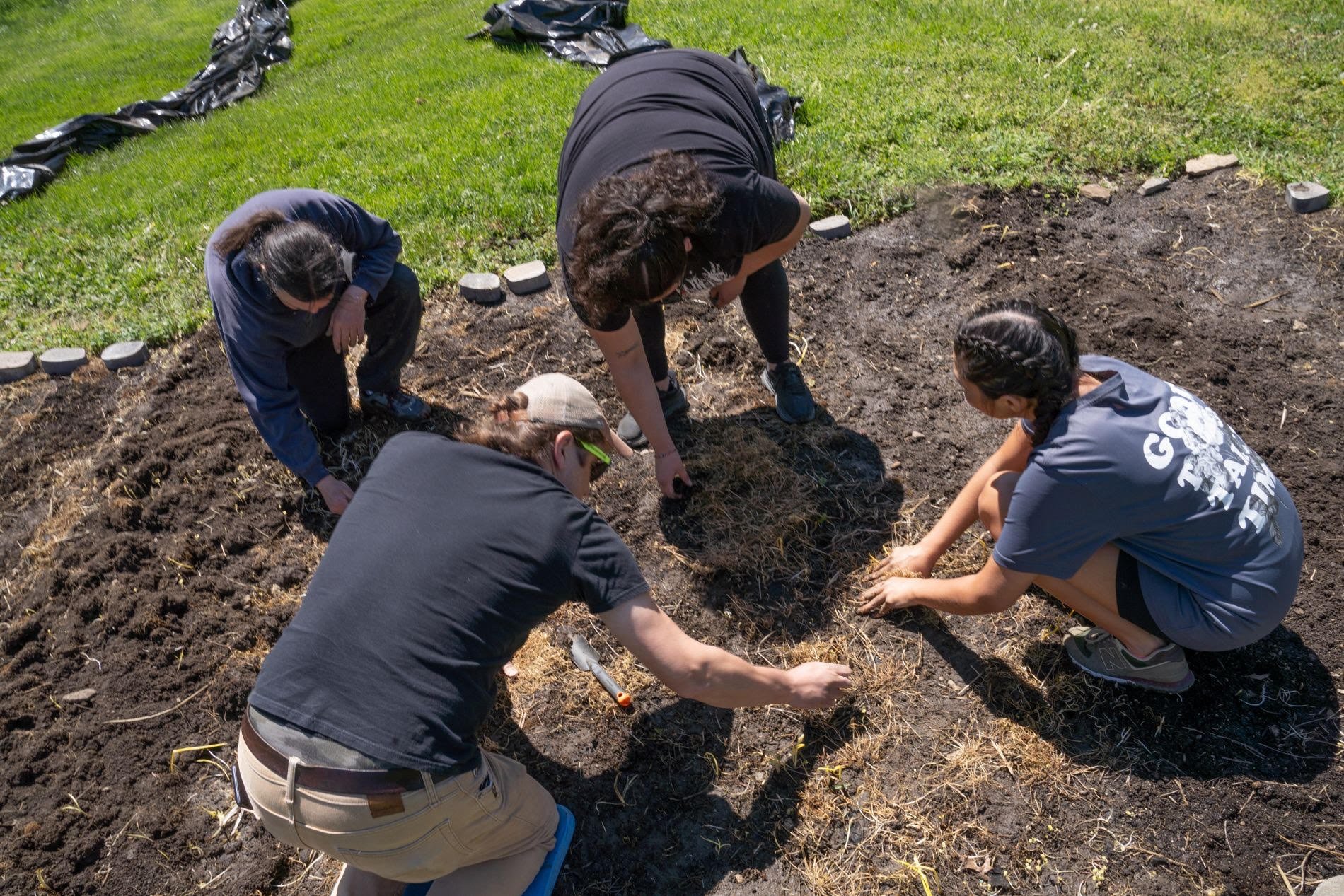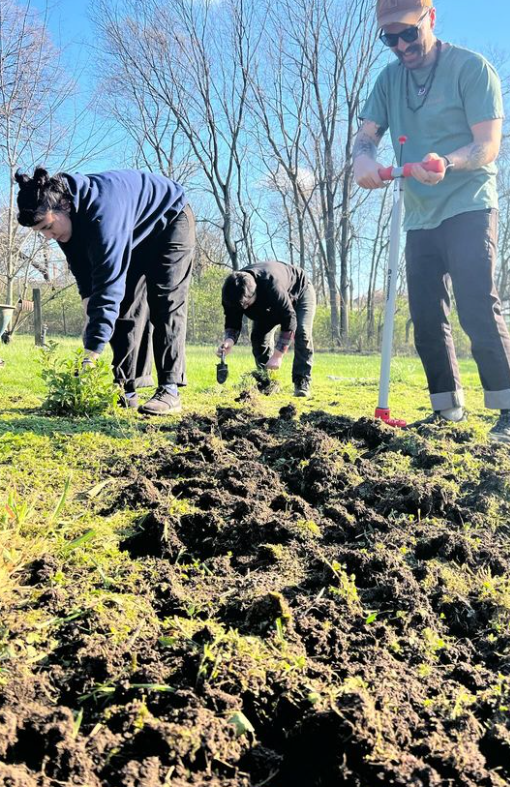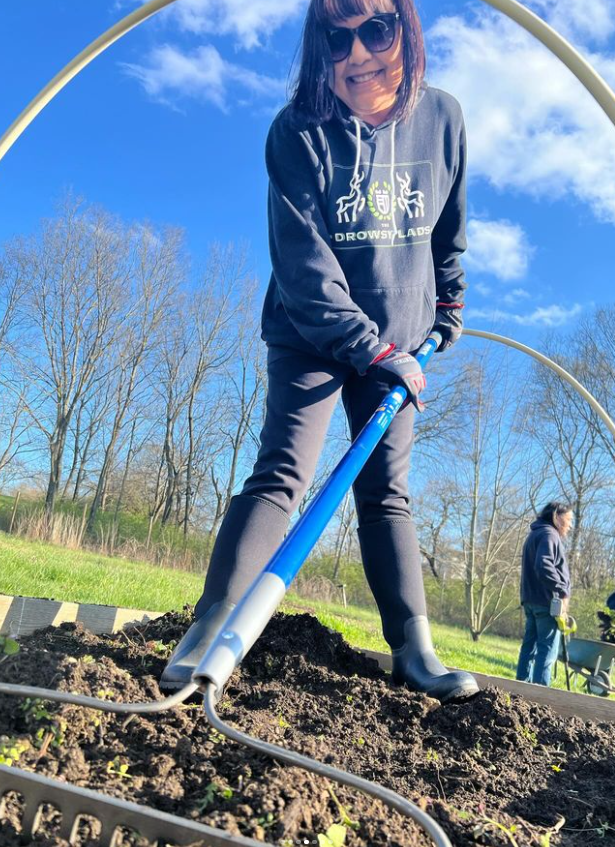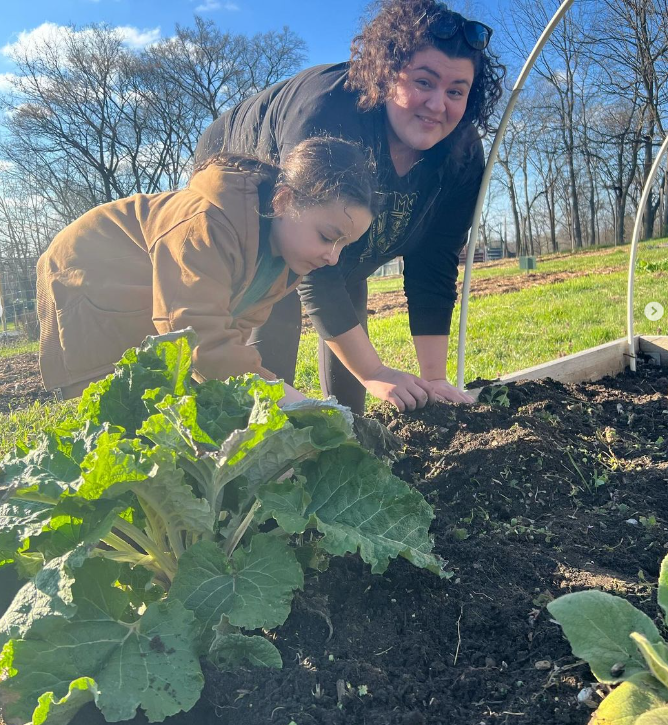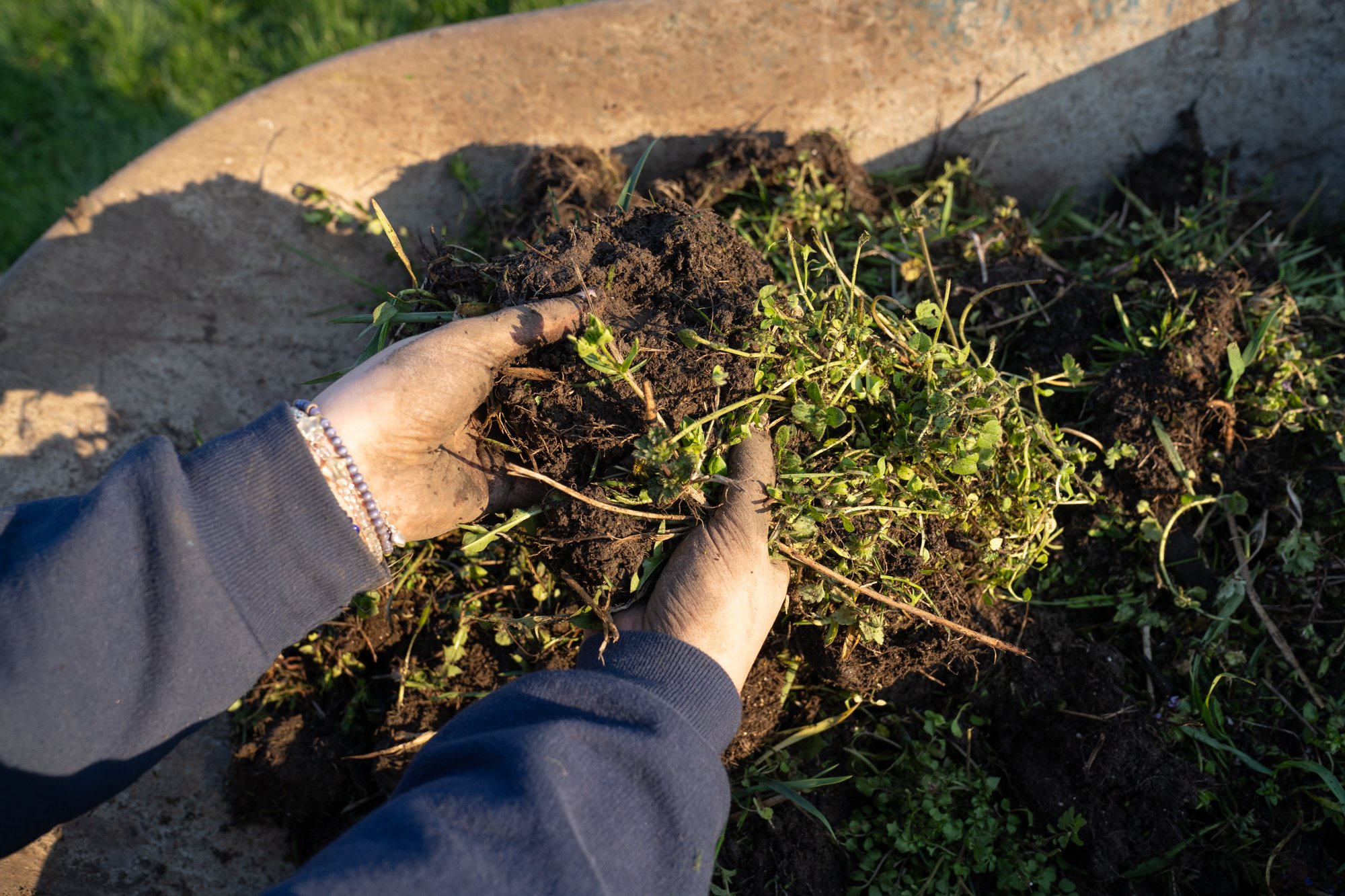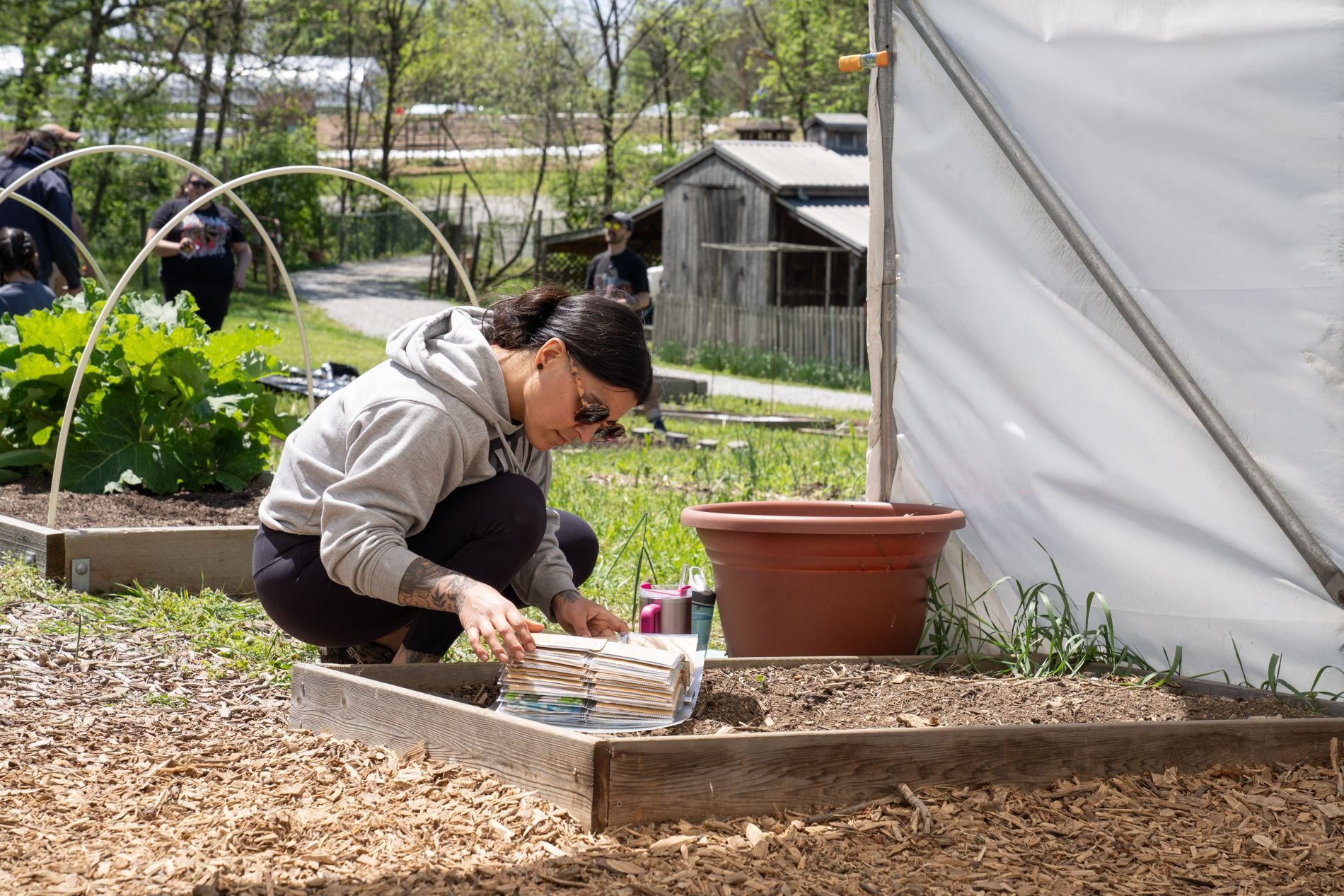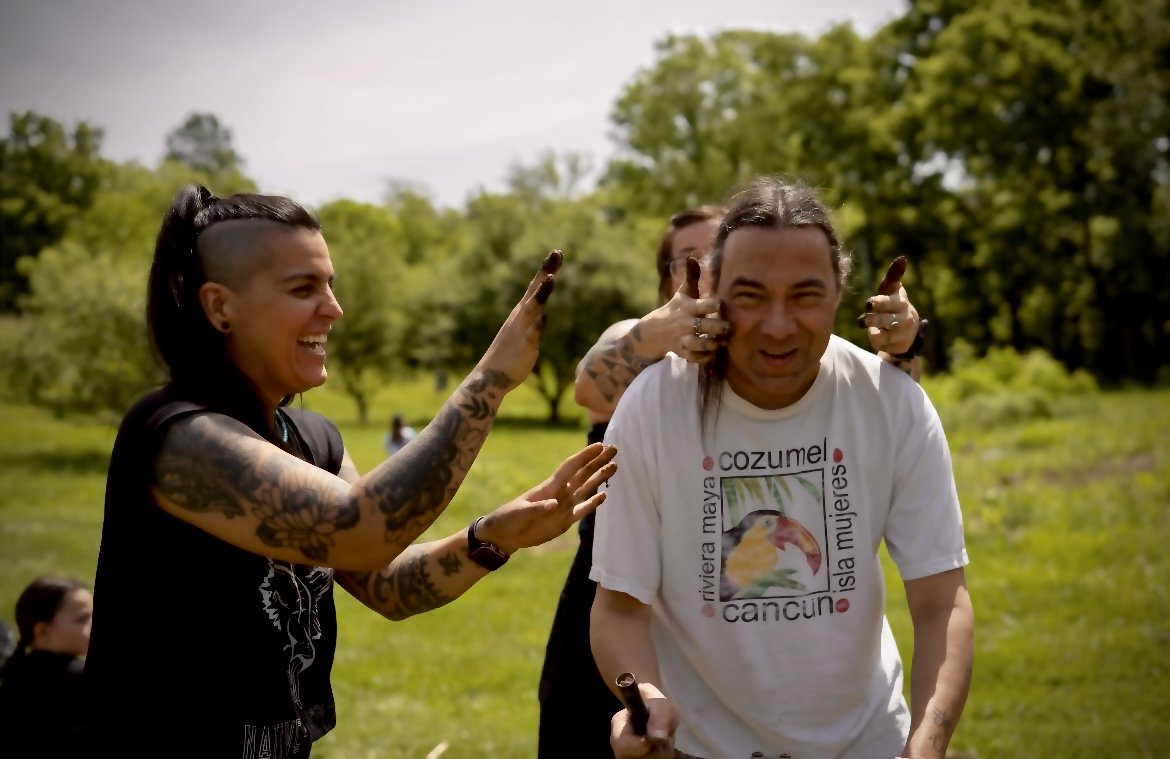The Urban Native Collective Garden Project
Cultivating Sustainability, Reclaiming Heritage
Eighty percent of the world's biodiversity is in the hands of Indigenous people and we've been working in a deep relationship and connection with mother earth since time immemorial. Across the many Nations who have called the midwest home, we have stewarded land and built knowledge exchange systems between peoples.
There is much to be learned from Indigenous knowledge and science. The UNC urban garden project builds and honors biodiversity. This is how we work to manage land for what is known today as carbon sequestration by conserving and restoring ecosystems and showing people that changing agricultural and urban gardening practices makes a huge difference.
The scientific community, including Indigenous scientists, calculate that these low tech methods of rematriating urban spaces to green could draw down over a third of global carbon emissions by 2030, while simultaneously rescuing ecosystems, strengthening biodiversity, managing water, and mitigating pollution.
Cincinnati is home to thousands of Native Americans
This land along with plant relatives had been cultivated for many thousands of years.
Even so, today, the Indigenous people who live here lack access to fresh foods, sacred seeds, and land to plant those seeds.
Over the past year, the coalition has been working with donors in the Cincinnati area to reclaim urban spaces to grow and distribute foods and medicines for locals by building garden beds. Our goal in creating these spaces is to increase access for all, reduce dependence on chemicals and commercial growing that does not honor the land, and to expand knowledge of traditional food ways.
“Working in a garden develops your relationship to the land. Our ancestors understood that gardening can transform our sense of scarcity and insecurity into feelings of abundance and control – something we all need these days.”
In August of 2020 and in May of 2021, the UNC presented to the Midwest Regional Sustainability Summit in building a regenerative region through the use of our urban gardening methods. Ecological gardeners like us at UNC, those who garden with Indigenous plants including perennials, gardens for birds, pollinators and other wildlife, and regenerative food gardeners who grow organically and consider the needs of pollinators and beneficial insects are already practicing natural climate solutions. Their land is probably already functioning as a carbon sink, rather than being a carbon source, as so many conventionally managed, chemically dependent landscapes are. Our program can shift the city of Cincinnati to Native American wisdom for all.
As a part of our presentation to the Sustainability Summit, presenter, Dawn Knickerbocker and Shane Creepingbear said, “Working in a garden develops your relationship to the land. Our ancestors understood that gardening can transform our sense of scarcity and insecurity into feelings of abundance and control – something we all need these days.” Native Americans have some of the highest rates of food insecurity, health problems, poverty, and more. With more than 70% of all Native Americans living off the reservations, we are in need of solutions- especially for urban Natives.
The UNC urban gardening project restores the Urban Native community of Cincinnati to physical well-being and a spiritual relationship to the Earth. Food Sovereignty is the right of Native Indigenous people to reclaim our own food and agricultural systems, as well as our right to access nutritious traditional foods that are produced using sustainable practices rooted in Indigenous values. An urban upbringing can mean our youth and community lose track of our old way of walking on this Earth. Our goal is to relearn this knowledge. In the process, the UNC activities help the community reclaim food sovereignty – ready access to healthy, affordable, culturally appropriate food – and we meet this need by distributing crops.
The longer-term goal of the project is to participate in farmers markets, deliver household shares of produce to locations in Native neighborhoods, and partner with other community organizations, such as the Black Liberation Movement of Cincinnati. If you would like to get involved with the project, please let us know.
Grow with Us: Nourish the Community!
Join the Urban Native Collective in nurturing a greener, healthier future through our Urban Garden Project. We invite you to be a part of this transformative journey, where every seed sown is a step towards rekindling our spiritual relationship with Mother Earth and addressing critical issues like food sovereignty, environmental sustainability, and cultural preservation. Whether you are an experienced gardener, a supporter of Indigenous knowledge, or someone looking to make a positive impact in the community, your involvement is invaluable. Help us cultivate urban spaces that serve as living classrooms, providing access to fresh, culturally significant foods, and promoting ecological practices rooted in Indigenous wisdom. Together, we can create thriving gardens that not only feed bodies but also heal spirits, bringing us closer to realizing our vision of a regenerative and resilient community.


